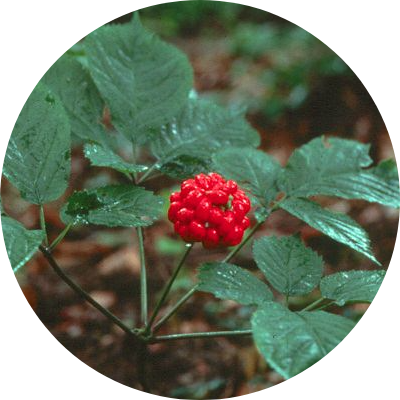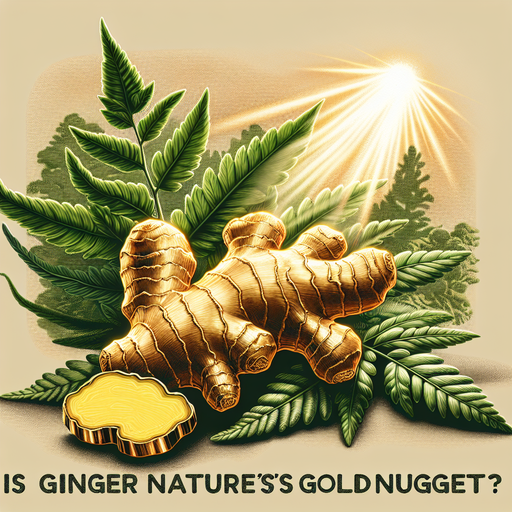Ginseng is a slow growing plant that has been used in Chinese herbal medicine for centuries. It can take up to 4-6 years for ginseng to grow before being harvested for its fleshy roots. There are several types of ginseng, and each species varies in their concentration of the active compounds, producing slight differences in effects on the body. Ginseng contains a number of bioactive compounds, the most important are triterpenoid saponins called ginsenosides.

What Is An Adaptogen?
Adaptogens are herbs that improve mental performance and reduce cortisol levels in the body. Herbs are considered adaptogens if they have certain properties:
- They aren't toxic
- They reduce cortisol levels in the body
- They improve the body's health
Adaptogens were first studied in Russia to help soldiers in WW2 improve their performance. The scientist N.V Lasarez researched some of the most powerful adaptogens such as Ginseng and Ashwagandha. These two herbs are found in our Stress Less product as they are powerful adaptogens.
Adaptogens improve the body's ability to handle and regulate physical and mental stress. They don't decrease the impact a stressor may have, but they improve the body's ability to manage it.
The Benefits of Ginseng
Studies have shown ginseng demonstrating antifatigue effects, which are believed to have stemmed from its antioxidant abilities. It also shows neuroprotective benefits, promoting brain cell health and inhibiting neurodegeneration. It is thought to do this by improving levels of nerve growth factor and neurotrophic factor, both of these chemicals are involved in regulating brain growth.
Improves Brain Cognition
Ginseng's antioxidant properties help prevent neural damage caused by free radicals and has promising cognition enhancing properties. It also inhibits neurodegeneration through these properties, further improving brain health. Many studies have shown the benefits of Ginseng for improving brain health. [1] [2]
Fights Fatigue and Improves Energy Levels
Ginseng is a traditional apoptogenic herb used to enhance the body's stamina and performance. It reduces stress and fatigue by reducing cortisol levels and the HPA response to physical stressors. It also inhibits the oxidative stress in cells throughout the body, improving mitochondrial function and energy production in cells. [3] [4]
Reduces Inflammation
Ginseng extracts regulate the immune system and its respective cells such as the T and B cell population and any dendritic or macrophage cells. By regulating these cells and exhibiting an antioxidant capacity on cells, it reduces inflammation throughout the body and improves the body's immune response. [5]
Antidiabetic Properties
Research has shown that Ginseng extract improves the sugar control and insulin sensitivity in type II Diabetes. It has also been shown to reduce hyperglycemia and regulate immune cell in type I diabetes.
Why Stress Less Contains Ginseng
Ginseng has a number of health benefits, but its primarily benefit is to reduce cortisol levels. Our product Stress Less contains Ginseng as one of the active ingredients to take give you the best benefits Ginseng has to offer.

References
- Kennedy, D. O., & Scholey, A. B. (2003). Ginseng: potential for the enhancement of cognitive performance and mood. Pharmacology, Biochemistry and Behavior, 75(3), 687–700. https://doi.org/10.1016/S0091-3057(03)00126-6
- Scholey, A., Ossoukhova, A., Owen, L., Ibarra, A., Pipingas, A., He, K., Roller, M., & Stough, C. (2010). Effects of American ginseng (Panax quinquefolius) on neurocognitive function: an acute, randomised, double-blind, placebo-controlled, crossover study. Psychopharmacology, 212(3), 345–356. https://doi.org/10.1007/s00213-010-1964-y
- A J HARTZ, S BENTLER, R NOYES, J HOEHNS, C LOGEMANN, S SINIFT, Y BUTANI, W WANG, K BRAKE, M ERNST, & H KAUTZMAN. (2004). Randomized controlled trial of Siberian ginseng for chronic fatigue; RCT of Siberian ginseng for chronic fatigue; A. J. Hartz and others. Psychological Medicine, 34(1), 51–.Bao, L., Cai, X., Wang, J., Zhang, Y., Sun, B., & Li, Y. (2016). Anti-fatigue effects of small molecule oligopeptides isolated from panax ginseng C. A. meyer in mice. Nutrients, 8(12), 807–. https://doi.org/10.3390/nu8120807
- Jung, H. C., Lee, N. H., Kim, Y. C., & Lee, S. (2020). The effects of wild ginseng extract on psychomotor and neuromuscular performance recovery following acute eccentric exercise: A preliminary study. Applied Sciences, 10(17), 5839–. https://doi.org/10.3390/app10175839
- Kang, S., & Min, H. (2012). Ginseng, the “immunity boost”: The effects of panax ginseng on immune system. Journal of Ginseng Research, 36(4), 354–368. https://doi.org/10.5142/jgr.2012.36.4.354
- Hong, Y. J., Kim, N., Lee, K., Hee Sonn, C., Eun Lee, J., Tae Kim, S., Ho Baeg, I., & Lee, K.-M. (2012). Korean red ginseng (Panax ginseng) ameliorates type 1 diabetes and restores immune cell compartments. Journal of Ethnopharmacology, 144(2), 225–233. https://doi.org/10.1016/j.jep.2012.08.009
- Gui, Q. , Xu, Z. , Xu, K. , Yang, Y. & (2016). The Efficacy of Ginseng-Related Therapies in Type 2 Diabetes Mellitus. Medicine, 95 (6), e2584. doi: 10.1097/MD.0000000000002584.


